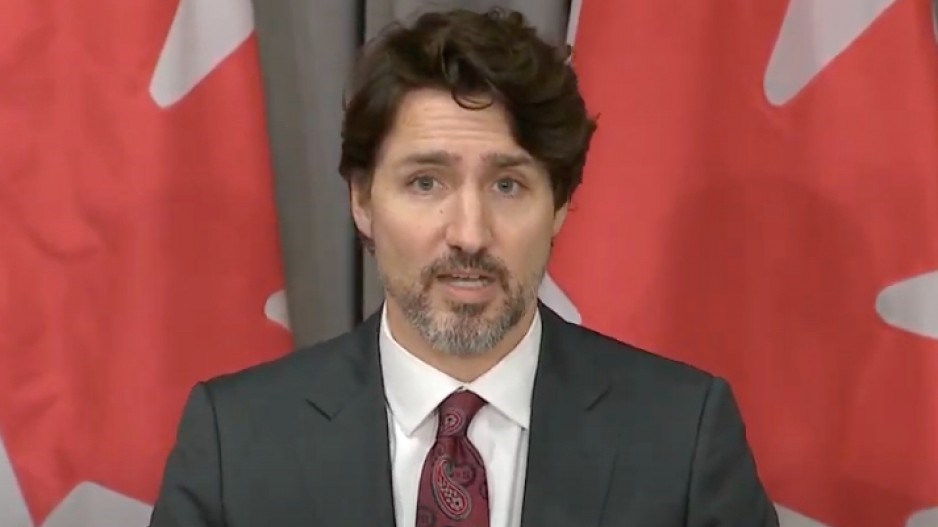Prime Minister Justin Trudeau said Monday, July 13, that Ottawa would extend its wage subsidy program until the end of the year.
The program brings cost relief to businesses hit hard by the COVID-19 pandemic, and is intended to support employment.
As of July 6, the wage subsidy had paid out $18.01 billion to 252,370 companies in payroll help.
The government's fiscal and economic "snapshot" last week boosted the budget of the wage subsidy program to $82.3 billion, in a sign of impending changes.
Trudeau didn't say how the government will reshape the eligibility rules for the program that critics have said stop some employers from getting aid they need.
The wage-subsidy program covers 75 per cent of wages, up to a weekly maximum of $847, for eligible companies and non-profits.
The Liberals originally saw the wage subsidy as a key tool in helping cushion the economic blow from COVID-19 by helping workers stay tied to their employers as businesses stayed closed due to the pandemic.
Instead, the budget for the program dropped as more workers accessed the Canada Emergency Response Benefit for people who lost their jobs or nearly all their hours.
The $500-a-week benefit had, as of July 5, paid out almost $54.8 billion to 8.25 million people.
The budget for that program is now at $80 billion, but it's scheduled to close in the fall.
Finance Minister Bill Morneau suggested last week that as health restrictions roll back and more companies reopen, more people would shift from the CERB to the wage subsidy. The government has pointed to about 1.2 million fewer people receiving the CERB in May in support of that view.
Morneau spent weeks leading up to the July 8 fiscal update getting input from businesses, labour groups and other stakeholders about how to reshape the program.
The government has hinted at changes to revenue-reduction thresholds that may discourage companies from growing, lest they find themselves suddenly cut off from federal aid.
"We need to reduce disincentives to growth," Morneau said last week. "We need to make sure the subsidy is appropriate for the challenges facing enterprises in actually rehiring and getting people back to work."
Trudeau also apologized on Monday for not recusing himself from discussions about the administration of Ottawa's $900 million student volunteer program.
WE Charity was initially selected to deliver the initiative under a nearly $20 million contract. Trudeau said he was aware of his family's ties to the organization, but unaware of the honorariums his mother and brother received for their involvement.
"It is not a surprise to me that they got paid by WE, but I did not know that they got paid by WE," Trudeau said.
"In this situation, I should have recused myself," he added, acknowledging that his involvement in Ottawa's student volunteer program has created controversy. Members of the Conservative Party of Canada have called on Trudeau to address his involvement before Ottawa's ethics committee.
"I get that. I made a mistake in not recusing myself immediately from the discussion."
Trudeau said he would evaluate any requests to address the issue before parliament. He also said that, because of his involvement, the rollout of the student volunteer program has been a bit delayed—an outcome he deeply regrets.
The prime minister also said he spoke with U.S. president Donald Trump earlier in the day about the Canada-U.S.-Mexico Agreement—which took effect July 1—Black Lives Matter, China, the two Canadians who remain detained in China and U.S. aluminum tariffs.
"I highlighted to the president that the pandemic has disrupted usual manufacturing processes and supply chains," said Trudeau. "It would be a shame to see tariffs come in between our two countries at a time when we're celebrating the new NAFTA."
Trudeau briefly told reporters to expect a joint announcement regarding the closure of the Canada-U.S. border.
Non-essential travel across the border is banned until late July.
The original story appeared here.
With Files from Canadina Press




